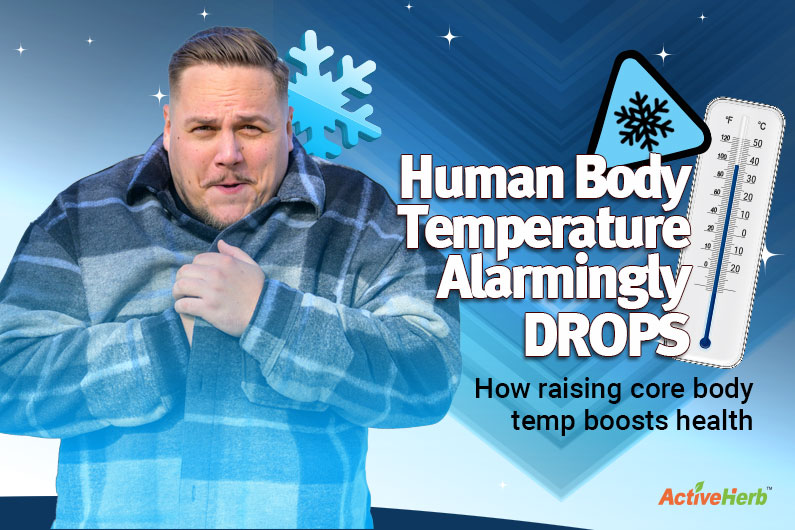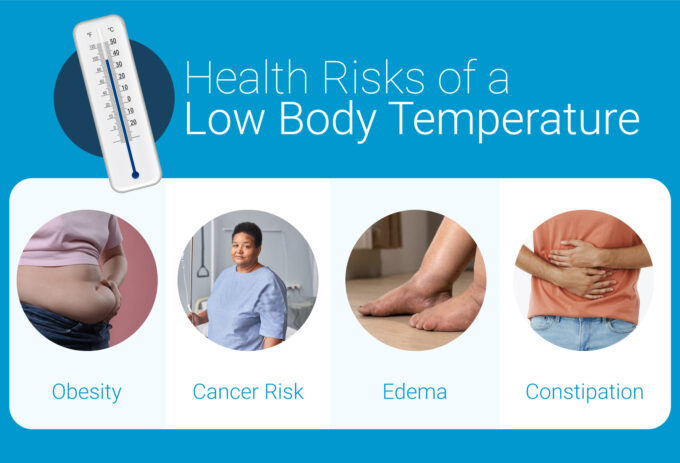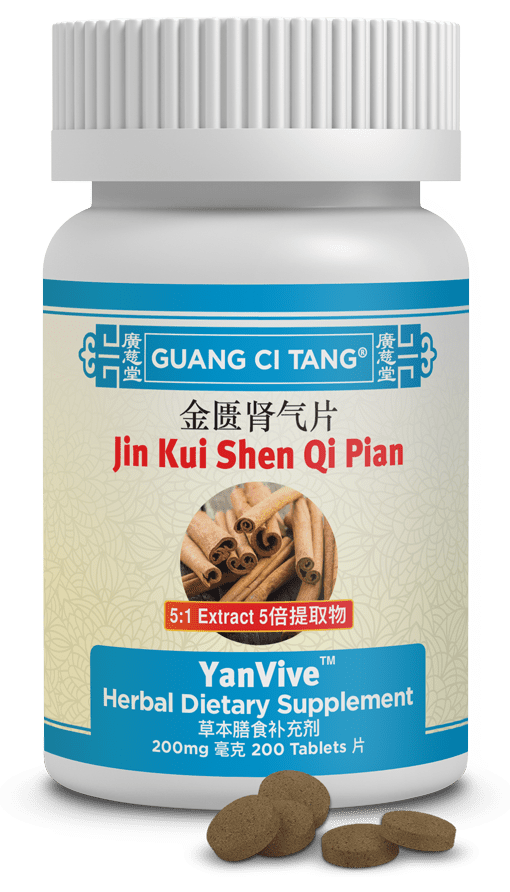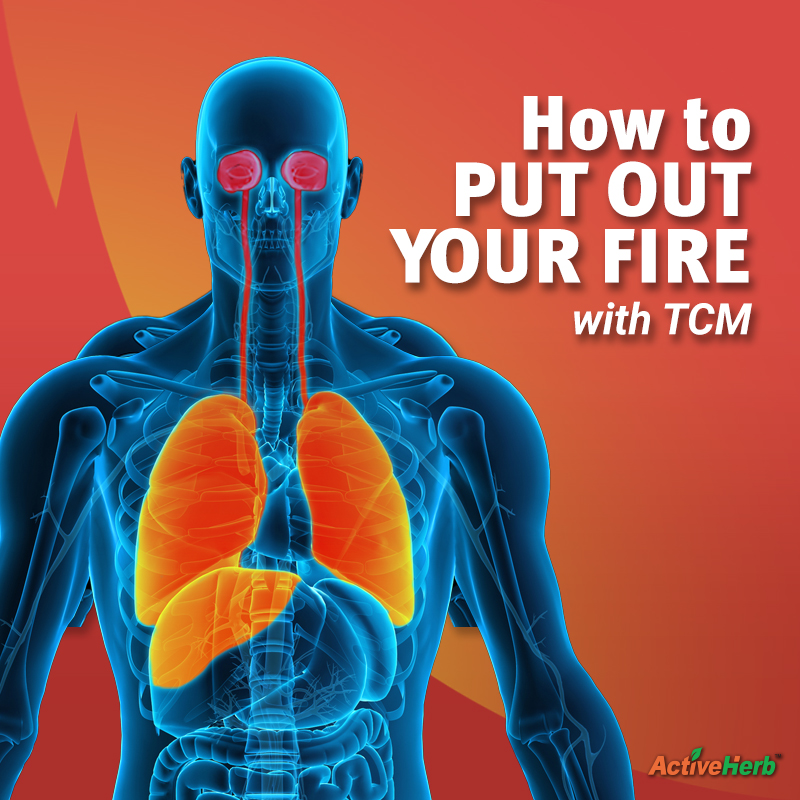98.6°F No More: Researchers Alarmed By Plummeting Average Body Temp

A slight deviation from historical body temperature can have disastrous health complications. Here’s how TCM can help warm your body back up to a Goldilocks zone 98.6.
Brrr. It’s Winter. Now that your bikini or board shorts are gathering dust in your dresser—unless you live in Miami—how can you keep warm without paying a fortune on your utility bills? The answer: raise your core body temperature.
Most people, even kids, know what normal body temperature is supposed to be: 98.6 degrees. However, a recent study from Stanford reveals a surprising and troubling trend about body temperature and its implications on your health.
A Cooling Trend That’s Heating Up Concerns
Last year, a research team at Stanford University School of Medicine published a study that found that the average body temperature of adults has continued to decline since the 19th century. In fact, core body temp has dropped by 0.72 degrees Fahrenheit in less than 200 years, from 98.6°F to 97.88°F.
This downward trend is disturbing. Why? Studies show that for every 1.8°F increase in body temperature, immunity may increase 5 to 6 times. Conversely, a 1.8°F decrease in body temperature can cause immune function to plummet by over 30%.
Body temperature is also closely tied to basal metabolic rate (BMR). For every 1.8°F rise in body temperature, BMR increases by about 13%. A lower body temperature can signal poor metabolism, which cascades into a host of health problems.
Let’s explore why modern humans are cooling down and the consequences of being cool, literally.
Why Has Body Temperature Dropped?
Lack of Exercise
Scientists point to our increasingly sedentary lifestyles. In the mid-20th century, people’s daily routines naturally incorporated much more movement. In rural areas, individuals grew crops, herded livestock, and completed household chores manually. Even city dwellers relied on walking and physically demanding tasks like hand-washing clothes and cooking from scratch. Outdoor sports were a popular pastime. (Do any kids play stickball these days in the city?)
Today, technology has transformed the way we live. Takeout meals replace home-cooked food. Cars, rideshares, and e-bikes have minimized physical exertion. Washing machines, dishwashers, and robotic vacuums handle chores. Many of us don’t even close our car trunks anymore; we just push a button. Physical activity, once a necessity, has become optional. Consequently, our muscle mass and BMR have declined.
Air Conditioning: A Double-Edged Sword
Modern conveniences like air conditioning have made us comfortable but less resilient. Spending long periods in climate-controlled environments dulls the hypothalamus, the brain’s temperature regulation center. Over time, this reduces our body’s natural sensitivity to temperature fluctuations, contributing to lower core body temperatures.
—-> Read: Is Air Conditioning Destroying Your Health
Chronic Stress and Cortisol Overload
21st-century stressors such as financial worries, job pressures, and complex relationships lead to elevated cortisol levels. While cortisol helps the body manage short-term stress, chronic overproduction breaks down muscle and promotes fat storage, especially visceral fat. The result? A metabolic slowdown and—you guessed it—lower body temperature.
The Health Risks of a Low Body Temperature

Obesity
Body temperature is a key indicator of metabolic health. A slight increase in body temperature boosts metabolism, enabling effortless calorie burning—even without dietary restrictions or strenuous exercise. On the other hand, low body temperature slows this process, making weight gain more likely.
Cancer Risk
Here’s a chilling fact: Research shows that cancer cells thrive at body temperatures around 95°F. These conditions often exist in organs like the stomach, large intestine, and lungs. That body temperatures are collectively cooling may at least partly explain the rise in cancer cases.
Edema
Low body temperature reduces the efficiency of fluid metabolism. This leads to water retention. Excess fluid accumulates in the legs and abdomen, causing bloating and puffiness. Another reason to warm the body is that a warmer core temperature of the kidneys will improve water metabolism.
Constipation
Drinking more water can help with constipation. But before you start gulping down water, consider this paradox: For women, the root cause of constipation is often low gastrointestinal temperature. When the digestive fire (the ‘Middle Burner’ or ‘Mid Warmer’ in TCM-speak) is weak, so, too, is peristalsis—the wave-like muscle contractions in the digestive tract that move food and waste through the system.
So, here’s where the paradox of drinking water comes into play. In cases of “cold intestines,” consuming more water might actually worsen the issue. However, by improving circulation and raising the temperature of the lower abdomen and stomach, the digestive system warms up, stimulating intestinal movement and relieving constipation.
Other Health Problems Caused By Low Body Temp
If your body temp is a bit on the chilly side, blood circulation becomes sluggish. This can deprive the brain of oxygen and nutrients, potentially causing brain fog, fatigue, and even depression. In addition, gynecological issues such as uterine fibroids can manifest when the lower abdomen temp is colder than it should be. Finally, back pain and sleep problems can worsen with lower body temperatures because of poor blood circulation.
How to Raise Your Body Temperature
Let’s get some obvious tips out of the way. First, exercise, exercise, and exercise. Daily physical activity raises your body temperature and BMR. If possible, exercise in the morning, which will stimulate your BMR for the rest of the day. Also, listen to your mother and bring a jacket; stay warm and dry.
Other tips for increasing body temp include cold plunging/ice baths. This brief exposure to very cold or icy water may paradoxically raise your basal metabolic rate over time, improving your body’s adaptability to temperature extremes. Cold plunging activates brown adipose tissue (brown fat), which burns calories rapidly to generate heat. As a reward for cold plunging, treat yourself to a sauna. Exposure to the high temperatures of a sauna elevates the body’s core temperature, triggering the production of heat shock proteins (HSPs), a stress protein that helps repair cells and combat infections, explains SciTech Daily.
TCM Solutions for Warming Up Body Temp In Winter
In TCM, there are three main strategies for boosting body temp: improving blood circulation, boosting the function of the Middle Burner/Mid Warmer and tonifying Yang energy. ActiveHerb.com offers formulas for each function:
- CircuFine: Formulated to support overall circulatory health.
- Midwarmer: Sparks the fire of the digestive system and is especially beneficial for those with cold constitution symptoms such as cold hands and feet and a cold feeling in the stomach.
- YanVive: Our most affordable Yang tonic supports vitality and the lower back.
Warming Body Temp in TCM
Raising your core body temperature isn’t just about feeling toasty in winter—it’s vital for your overall health. By integrating exercise, smart habits, and TCM formulas, you can fend off the chill, raise your basal metabolic rate and enjoy better immunity, metabolism, and well-being all year round.







